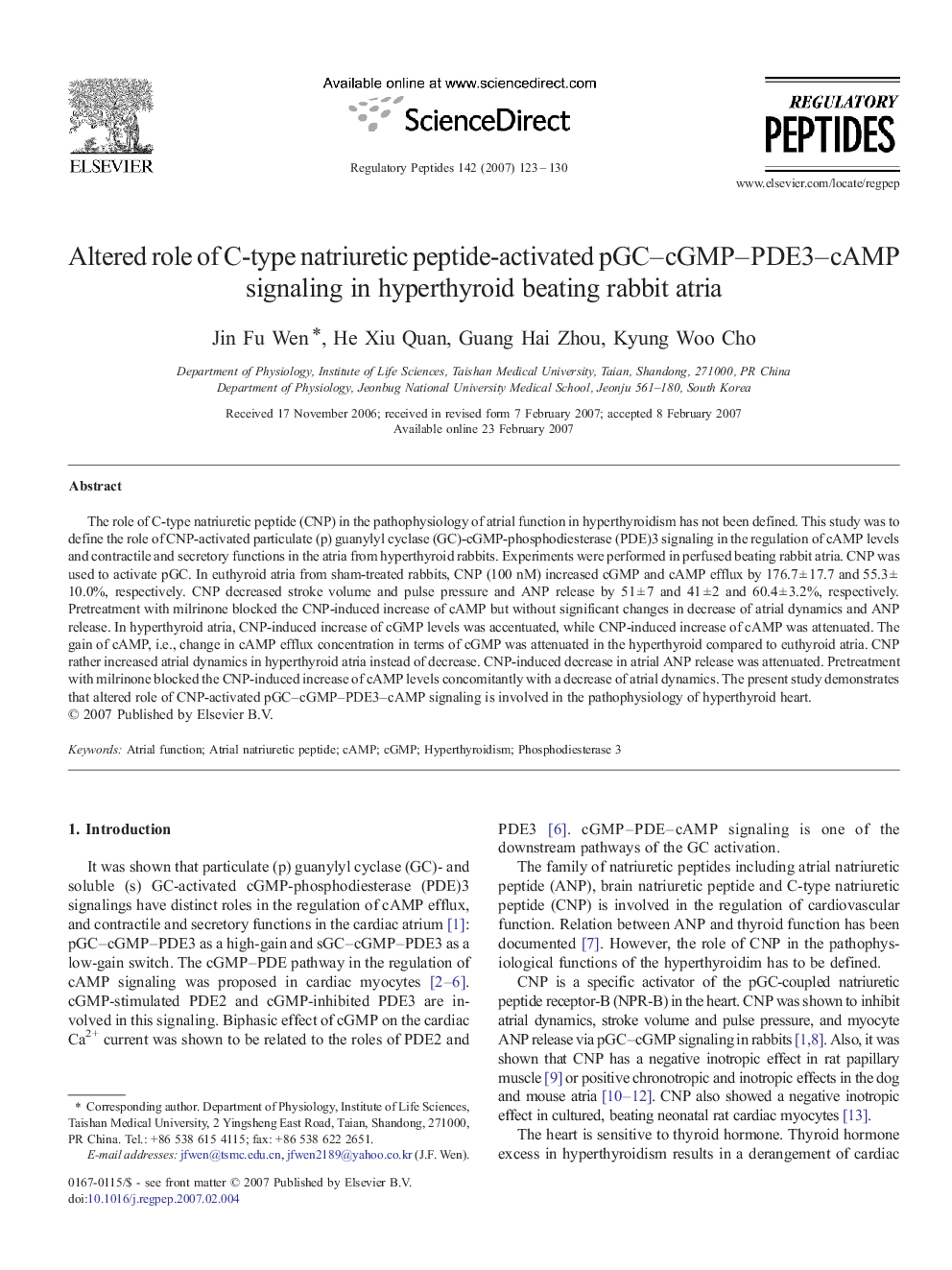| Article ID | Journal | Published Year | Pages | File Type |
|---|---|---|---|---|
| 2023150 | Regulatory Peptides | 2007 | 8 Pages |
Abstract
The role of C-type natriuretic peptide (CNP) in the pathophysiology of atrial function in hyperthyroidism has not been defined. This study was to define the role of CNP-activated particulate (p) guanylyl cyclase (GC)-cGMP-phosphodiesterase (PDE)3 signaling in the regulation of cAMP levels and contractile and secretory functions in the atria from hyperthyroid rabbits. Experiments were performed in perfused beating rabbit atria. CNP was used to activate pGC. In euthyroid atria from sham-treated rabbits, CNP (100 nM) increased cGMP and cAMP efflux by 176.7 ± 17.7 and 55.3 ± 10.0%, respectively. CNP decreased stroke volume and pulse pressure and ANP release by 51 ± 7 and 41 ± 2 and 60.4 ± 3.2%, respectively. Pretreatment with milrinone blocked the CNP-induced increase of cAMP but without significant changes in decrease of atrial dynamics and ANP release. In hyperthyroid atria, CNP-induced increase of cGMP levels was accentuated, while CNP-induced increase of cAMP was attenuated. The gain of cAMP, i.e., change in cAMP efflux concentration in terms of cGMP was attenuated in the hyperthyroid compared to euthyroid atria. CNP rather increased atrial dynamics in hyperthyroid atria instead of decrease. CNP-induced decrease in atrial ANP release was attenuated. Pretreatment with milrinone blocked the CNP-induced increase of cAMP levels concomitantly with a decrease of atrial dynamics. The present study demonstrates that altered role of CNP-activated pGC-cGMP-PDE3-cAMP signaling is involved in the pathophysiology of hyperthyroid heart.
Related Topics
Life Sciences
Biochemistry, Genetics and Molecular Biology
Biochemistry
Authors
Jin Fu Wen, He Xiu Quan, Guang Hai Zhou, Kyung Woo Cho,
